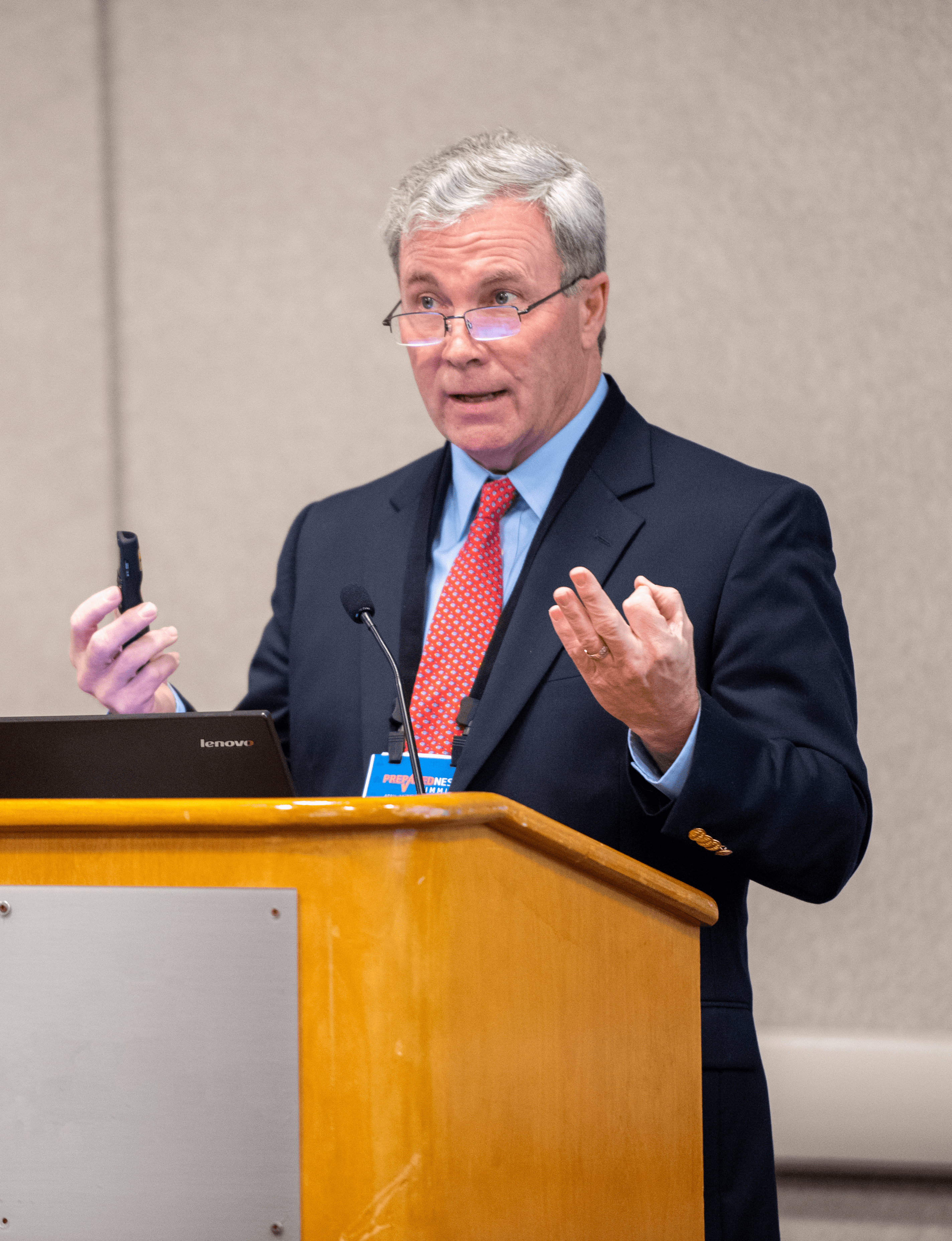
Life Saving Power for Life Support Users
Power Outage Partners is an innovative new initiative that seeks to provide life-saving power to life support patients living at home, extending device run time so patients have more time to safely evacuate during power outages. In short duration outages, the need to evacuate may be averted. Power Outage Partners is an initiative of Powered for Patients, a 501c3 non-profit created in 2014 to address the lessons learned from Hurricane Katrina and Super Storm Sandy.
The latest Power Outage Partners initiative is being launched in Texas, a state where recent natural disasters, including Winter Storm Uri in 2021 and Hurricane Beryl in 2024, created deadly challenges for individuals depending on electric powered medical devices. The first Power Outage Partners initiative was launched as a pilot in Louisiana, a state that has also seen more than its share of natural disasters. Initial planning for the project was made possible with CDC funding and project management support from the Association of State and Territorial Health Officials (ASTHO).
ASTHO published a Toolkit in 2023 that chronicles the Louisiana project and details other strategies jurisdictions can use to boost power outage support for individuals relying on electric-powered medical devices in their homes.
The concept for Power Outage Partners was developed by Eric Cote, an emergency power resilience expert, hired by ASTHO in 2021 to help the Louisiana Department of Health develop an operational plan for the nation’s first Power Outage Partners initiative. Cote was also hired by ASTHO to author the ASTHO toolkit published in August 2023.
Cote is now working with disability advocates and other stakeholders to launch a Power Outage Partners initiative in Texas. He stands ready to assist other jurisdictions across the U.S. who wish to launch their own project modeled after the Louisiana project or the latest project advancing in Texas.
The Idea Behind Power Outage Partners
As part of his long-standing work advancing emergency power resilience and supporting organizations devoted to assisting individuals with disabilities during disasters, Eric Cote began tracking two seemingly distinct but related statistics; the growing number of U.S. homeowners who installed standby residential generators and the increasing number of individuals relying on life support devices in their homes.
In the confluence of these trends, Cote saw an opportunity to enlist standby residential generator owners to help recharge the batteries of life support users living nearby during power outages. This concept became the cornerstone for the Power Outage Partners initiative, launched initially as a pilot project by the Louisiana Department of Health (LDH). Cote helped implement the project as an ASTHO consultant. In his early work with LDH, Cote turned his concept into action, identifying more than 6,000 standby residential generator owners in Baton Rouge and New Orleans.
As Cote and LDH refined the operational plan for Power Outage Partners, they realized that life support users would need at least two external batteries for their device to ensure that they retained at least one battery while any depleted batteries were being recharged. Another element of the operational plan was recruiting a volunteer force to shuttle depleted batteries through the recharging process to protect the privacy of participating generator owners and life support patients. Identifying this volunteer force became a logistical challenge that threated to slow the initiative, leading to a decision in August 2022 to shift the focus of Power Outage Partners away from battery recharging to providing funding to help life support users obtain additional batteries. This new approach would still achieve the project’s initial goal of extending the amount of time a life support user can safely remain in their home during an outage.
Meet Eric Cote
Eric Cote is one of the nation’s leading experts in emergency power resilience, expertise that has been tapped by local, state and federal agencies to help better safeguard emergency power in hospitals and accelerate government and private sector response when emergency power is threatened during an outage.
Cote has leveraged his emergency power resilience expertise to become a valued resource to organizations seeking to bolster power outage support for individuals who rely on electric-powered medical devices in their homes. In 2018, Cote served as a consultant to the Association of State and Territorial Health Officials (ASTHO) supporting creation of a federal toolkit to facilitate enhanced disaster preparedness for organizations serving individuals with disabilities.

In early 2021, Cote was hired by ASTHO to provide power outage planning support to disability specialists hired by ASTHO in 15 states, including Louisiana. The disability specialists were hired as part of a CDC-funded initiative led by ASTHO to boost COVID response capabilities and disaster preparedness support for individuals with disabilities. To augment its work in the 15 states, ASTHO issued an RFP that sought to fund innovative approaches to helping individuals with disabilities during disasters. Cote partnered with the Louisiana Department of Health to propose a project implementing his original concept for the Power Outage Partners initiative, which won ASTHO funding.
Cote began working closely with LDH officials in July 2021 to support planning and creation of an operational plan for the Power Outage Partners initiative. LDH officials identified three Medicaid waiver funds that could be used by waiver participants to purchase additional battery capacity for ventilators and other life support equipment.
Cote cultivated partnerships with durable medical equipment (DME) suppliers and case management firms hired by LDH to provide case management support for invasively ventilated Medicaid beneficiaries and their families. The DME suppliers and case management agencies provided Cote with detailed information about the types of life support equipment used by individuals and the number of batteries they had on hand. Cote used this data to develop recommendations on suitable battery systems that would provide individuals with 24 hours or more of runtime for most life support equipment and 20 hours or more of runtime for devices used while evacuating.
With CDC funding exhausted in late 2023, the Louisiana initiative paused from its operational footing. As funding is identified, the process of connecting invasively ventilated individuals with battery systems is expected to resume. Thankfully, the detailed work in Louisiana to determine the unique battery needs of individuals has proven very useful as Texas begins work on its own Power Outage Partners initiative.